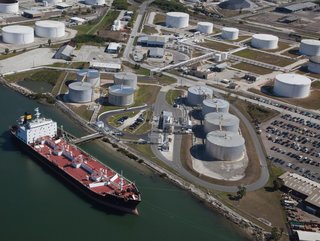Rising Container & Oil Prices Putting Squeeze on Logistics

The logistics sector faces an uncertain start to 2024, as the expanding Gaza conflict continues both to disrupt access to the Suez Canal and cause a rise in oil prices.
Freight prices have risen by 80% in the past week alone, having already increased by almost half the previous week, according to the most widely used measure of freight cost, the Shanghai Containerised Freight Index (SCFI). The index measures the average cost of a 20ft container being shipped from Shanghai to Europe.
It increased to $2,694 (£2,113) per container, up from $1,497 (£1,177) on Friday 22 December. The figure was given to Sky News by global logistics company DSV.
The higher costs have been caused by the decision of leading liner companies – including Maersk, MSC, CMA CGM, HMM, and OOCL – to reroute vessels from the Suez Canal via the Red Sea to routes via the African Cape.
This is in response to a series of attacks on commercial shipping from the Houthi movement, a Shia Islamist political and military organisation. Houthis are targeting vessels in the Red Sea in response to Israel’s war on Gaza, in a bid to pressure the international community to address the conflict between Israel and Hamas.
An estimated 15% of the world's shipping traffic transits via the Red Sea en route to the Suez Canal, and is by far the shortest shipping route between Europe and Asia.
The journey from Rotterdam to Singapore via Suez is 8,400 nautical miles. Via the Cape, it’s 3,280 nautical miles longer, an increase of almost 40%.
In common with most large logistics companies, DSV has told customers to expect:
- Transit-time delays of between 7-14 days
- Higher freight rates, due to increased fuel consumption
- A reduction in capacity of up to 20%, as longer transit times mean vessel turn-around times are increasing.
And with the Red Sea situation signs of escalating, the problems for global trade seem unlikely to ease any time soon.
On December 31, US Navy helicopters destroyed Houthi boats in the Red Sea, thwarting the attempted hijack of the Maersk-owned vessel, Maersk Hangzhou. The rebels were within metres of the ship, the US military has said.
Data from supply chain visibility specialist project44 shows that, as of December 29:
- 166 vessels have been rerouted, while an additional 28 vessels are 'drifting'
- ETAs for the impacted vessels is between 7-20 days
- Vessel volume in the Suez Canal in the past week has been 55% lower per day when compared to vessels levels prior to the attacks
Logistics customers likely to take hit on oil price hikes
The continuing attacks also means that shipping carriers are facing costs pressures from a rise in oil prices.
As a result, shipping costs could rise further.
New-year oil prices saw Brent crude increase by $1.28 (1.7%) to $78.32 a barrel while US West Texas Intermediate crude was at $72.69 a barrel, up $1.04 (1.5%).
Sky News reports that ship tracking data shows at least four tankers carrying diesel and jet fuel from the Middle East and India to Europe are sailing around Africa to avoid the Red Sea.
A wider conflict in the Middle East could affect oil prices on a far greater scale, closing crucial waterways for oil transport, such as the Red Sea and the Straits of Hormuz in the Gulf.
As it is, a Reuters survey of economists and analysts predicts Brent crude will average $82.56 a barrel in 2024, slightly higher than the 2023 average of $82.17.
As with any rise in oil prices, shipping companies will have to decide how much of the extra cost they pass on to customers.
Businesses are unlikely to be holding their breath on much largesse from the shipping lines who – during the pandemic – reported vastly increased revenues, fuelled by container charges that on some routes were ten times higher than the pre-pandemic norm.
Previously, business analysts have predicted that a rise in oil prices is likely to spark a surge of mergers and acquisitions in the logistics sector, because fuel efficiency is crucial to such companies, many of who are struggling to maintain profit margins.
- Check out the latest edition of Supply Chain Digital and also sign up to our global conference series: Procurement & Supply Chain 2024
******
Supply Chain Digital is a BizClik brand






